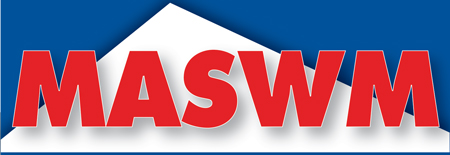
Members | About Workshops | Services for Missourians | News
Dignified and meaningful employment
for people with disabilities

From their beginnings in the 1960s, Missouri’s Extended Employment Sheltered Workshops have consistently pushed creative solutions for job creation. The result has been a grasssroots effort that also serves businesses and the community.
From the Grassroots Up: Serving Missouri and Missourians
The story of Missouri’s Extended Employment Sheltered Workshops began in the 1960s. Seeking safe and secure employment options for their children with disabilities, parents and guardians began forming workshops to provide these opportunities.
For most of these parents and their children, the alternatives were sitting at home or in programs that required 100 percent governmental subsidies. With real vision, these parents realized that gainful employment would bring other advantages as well, including pride and skills. Many soon realized that the healthy socialization was another benefit. Although much has changed, this foundation remains true for workshops today.
For most of these parents and their children with developmental disabilities, the alternatives are sitting at home or finding programs that require 100 percent governmental subsidies.
The majority of workshop employees have been diagnosed with developmental disabilities. Other frequent disabilities include mental illness, head injury, blindness, deafness, seizure disorders and physical disabilities.
Prior to being hired for employment in the workshop, these Missourians must be assessed by the state Division of Vocational Rehabilitation to determine whether or not they are capable of working in a competitive environment. If the rehabilitation counselor determines they cannot work competitively, the counselor will certify them for employment in the workshop.
Special Needs Bring Added Services, Costs
Although workshops compete in an open market, the needs of their employees mean extra supervision and other elements that increase workshop overhead. A major step was taken in 1971 with passage of Missouri Senate Bill 40. SB40 provided important funding support by enabling local counties to create tax levees for workshops and residential facilities. Additional funding today includes a per diem supplement for each workshop employee from the Department of Elementary and Secondary Education Sheltered Workshop Division.
County and state funding does fill a critical gap from higher overhead for workshop supervision and other services to people with disabilities. Workshops also rely on quality, flexibility and their large workforce to sell their services, making that supervision critical.
Besides providing employment for people with disabilities, workshops also put money back into the community. Payroll, purchase of goods and services and participation in local affairs are some of the ways that workshops contribute to the community. This community “payback” totals hundreds of millions of dollars each year. Just one more bargain that workshops bring.
More About Workshops
A Real Bargain | Our Foundation | Consumers | Opportunities | Businesses | Busness Services
Grassroots History | What People Say | About Workshops | MASWM Mission Statement
MASWM The Missouri Association of Sheltered Workshop Managers
If you have questions, please contact:
President Tim Poepsel – (573) 503-0000 or tpoepsel@empacgroupinc.com
or Legislative Chair Kit Brewer – (314) 647-3300 or cbrewer@cuinc.org